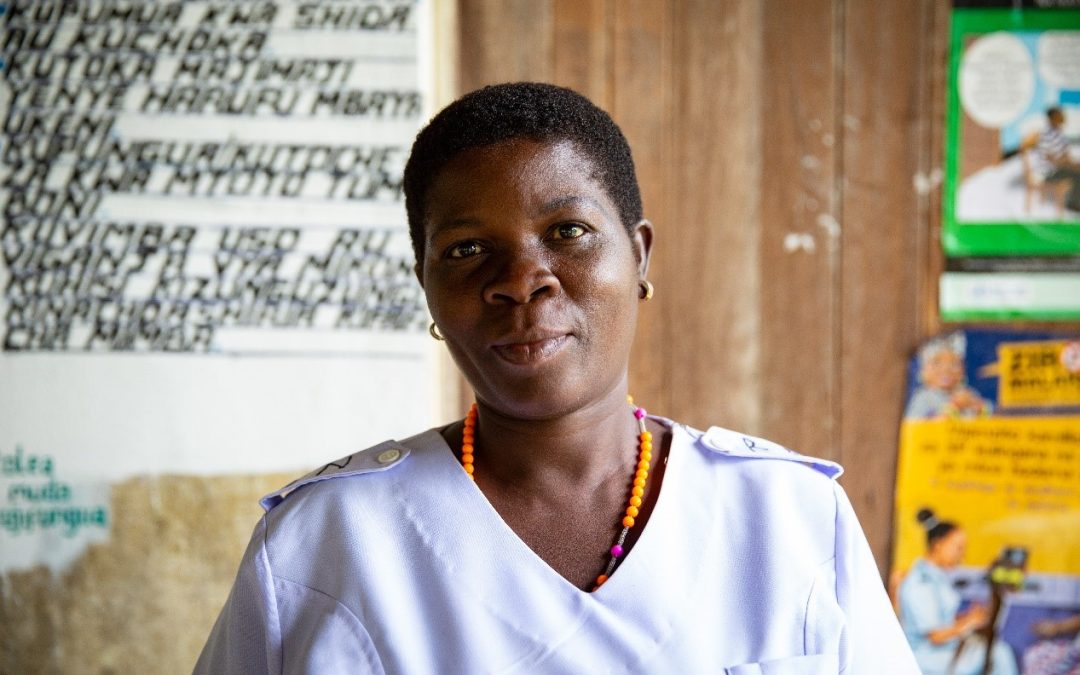Through the Youth for Health (Y4H) project, co-funded by the European Union, MSI Tanzania is working with the Ministry of Health and partner organisations, Sikika and DSW, to support young people with their sexual health and reproductive choices by increasing awareness, ensuring services and training public sector facilities to deliver adolescent-friendly services.
In 2022, the Y4H project conducted a one-week training for health workers on sexual and reproductive health, including family planning and the provision of youth-friendly services. Sophia Emmanuel Magombana, 38, is a service provider at the Kivukoni Health Centre in Ulanga, Morogoro region. Sofia was among the health workers selected to undergo the training. Read her story:
“Whenever I received a young person at the health centre seeking FP and other SRH services, I would immediately associate them with promiscuity. But since I underwent the training, I completely changed my outlook on offering SRH services to young people and I have come to understand why it is crucial for them to have access to these services.
Before the training, I would offer SRH services to young people, but with a lot of judgement. I was also unfriendly to them as I felt family planning was meant for adults. But everything changed for me when I was selected to attend a one-week SRH training in 2022, which included family planning and the provision of youth-friendly services. During the training, I started putting myself into their shoes by relating to their daily experiences and trying to understand their challenges. Armed with this new knowledge, I decided to change my negative attitude and resolved to accommodate them. As a result, adolescents and youth have come to trust me enough to open up about their sexual life without fear or judgement.
Apart from offering them SRH services, we also introduced weekend clinics designed to increase access to SRH information and services for adolescents. So, my colleague and I oversee the clinics with support from the community health workers. During these clinics, we usually integrate “edutainment” activities such as games, sports, health education on relevant topics and integrated services provision, especially family planning. So far, attendance has been very encouraging. Often, we see new faces as they introduce and recommend their friends to come to join us and they get concerned if we miss holding a session. I would say the weekend clinics appeal to most adolescents because they expose them to much knowledge on sex. As a topic, sex is almost a taboo in most homes, but in reality, young people know these things and so it’s my responsibility to share information about how to practice safe sex.
What keeps me motivated is seeing the impact that access to ASRH services can have at the community level. Looking back, most adolescents would drop out of school due to unintended pregnancies, leading to high numbers of unsafe abortions and other negative health outcomes. Other adolescents and youth were against SRH services – citing the different myths and misconceptions, some believing contraceptives can cause barrenness. Back then, I had no experience on how to handle such cases. Although we rarely get such cases, I am now more accommodating and understanding. I am able to meet adolescents at their level and communicate with them by providing the correct information and services.”
The Youth for Health Project
The Youth for Health (Y4H) project is a three-year initiative co-funded by the European Union that works to expand access to life-changing adolescent sexual and reproductive healthcare and rights. Its focus is on reaching the poorest and most marginalised adolescent girls, including those living with disabilities, and in rural and hard-to-reach areas of Ethiopia, Ghana, Kenya, Sierra Leone, Tanzania, and Zambia. By unlocking demand and access and contributing towards changes in favour of supportive policies and funding environments, Y4H will increase and sustain access to reproductive choices for girls and young women.
It is being implemented by MSI Reproductive Choices together with Deutsche Stiftung Weltbevölkerung (DSW), Centre for the Study of Adolescence (CSA) Kenya, Health Alert Sierra Leone (HASiL), Youth Advocates Ghana (YAG), Sikika in Tanzania, Restless Development Zambia and Youth Network for Sustainable Development (YNSD) in Ethiopia.

